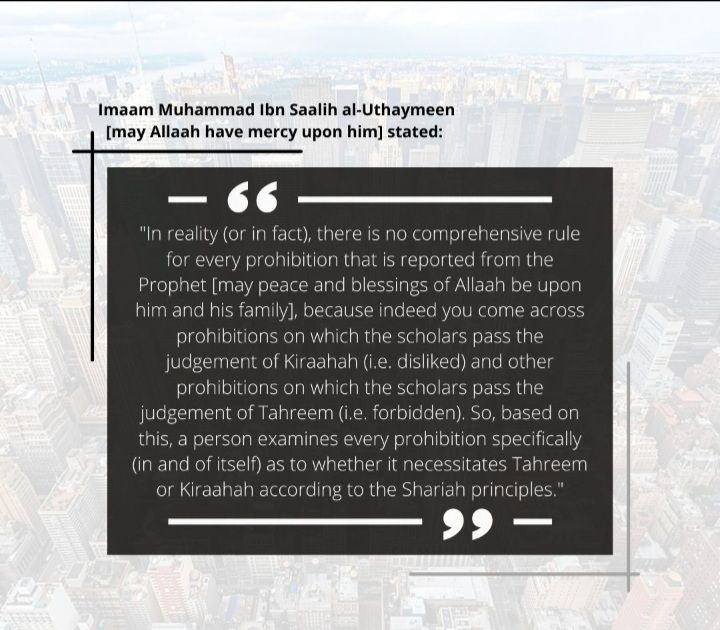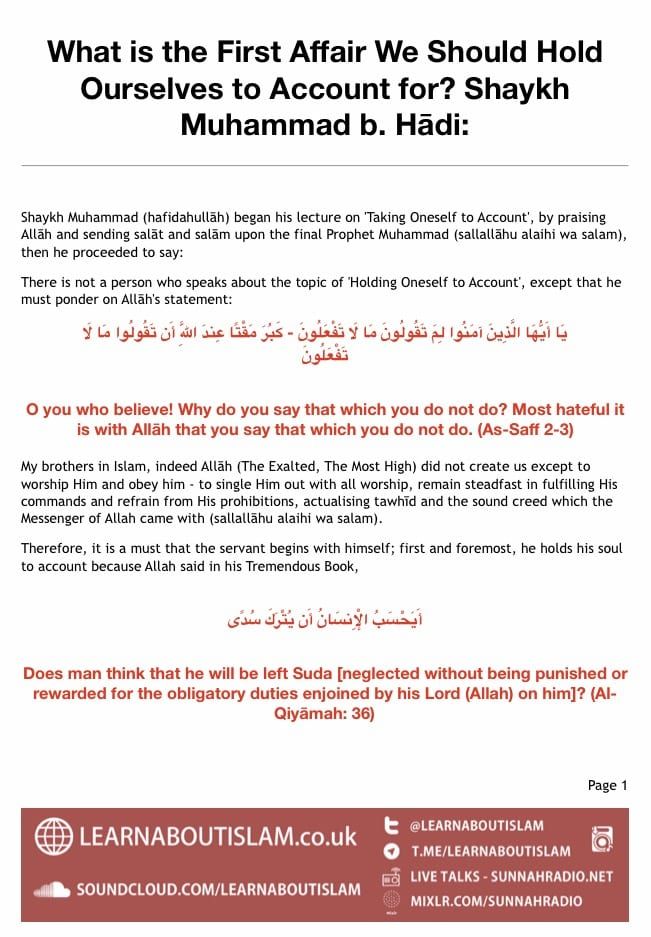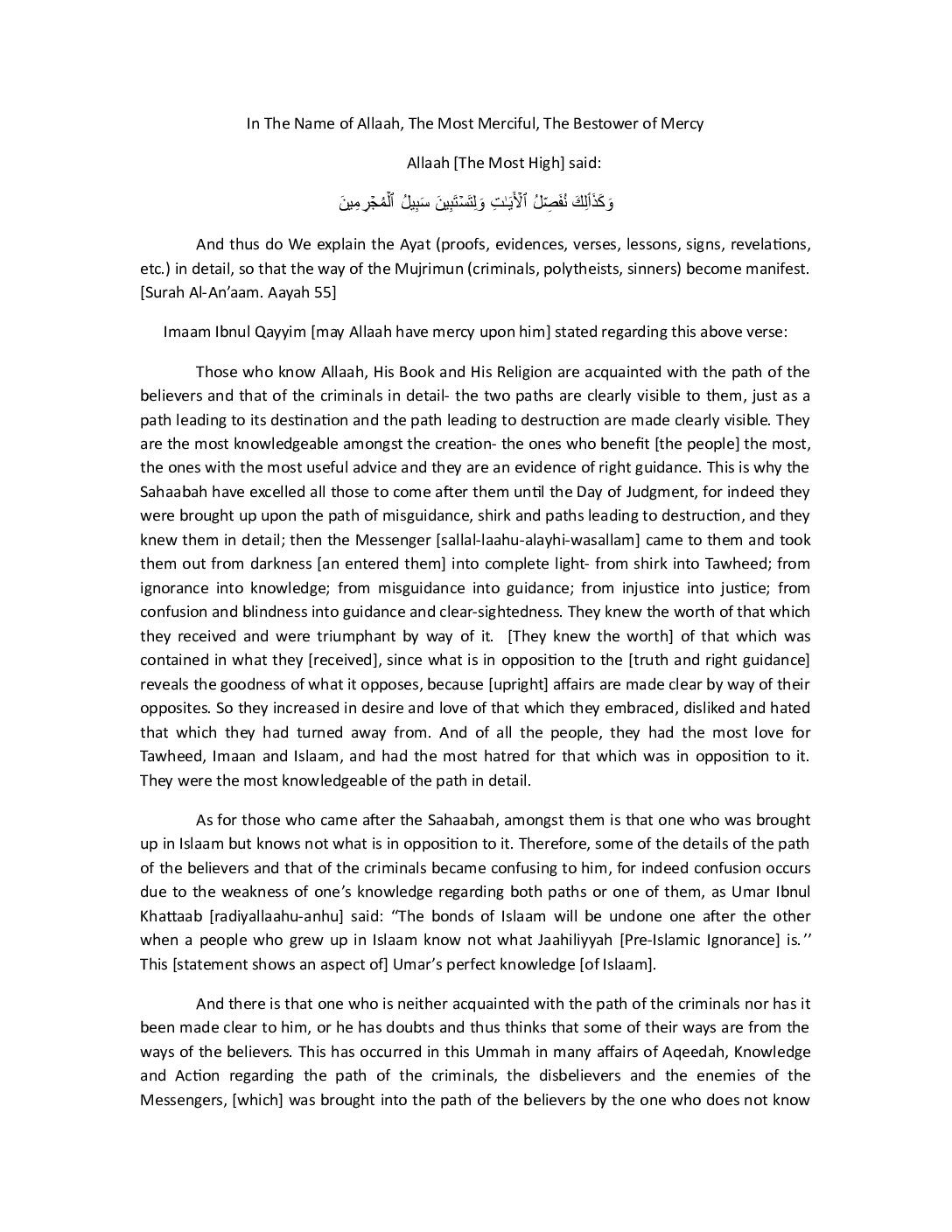The virtues of the first ten days of Dhul Hijja
All praise is due to Allaah The Lord of the Aalameen and may the salaah and salaam be upon the leader of the Messengers. To proceed
Indeed from the favours of Allaah is that He made for His righteous servants fixed days/time periods in which they can increase in the performance of righteous actions. And amongst these fixed days/time periods are the first ten days of Dhul-Hijja. Indeed, the virtues of these first days have been stated in the Qur’aan and the Sunnah
Allaah (The Most High) said
وَالفَجرِ وَلَيَالٍ عَشرٍ
By the dawn; By the ten nights (i.e. the first ten days of the month of Dhul-Hijja
[Soorah al-Fajr: Ayah: 1-2]
Imaam Ibn katheer (rahimahullaah) said that the intended meaning behind this verse is the first ten days of Dhul-Hijja as stated by Ibn Abbaas, Ibn Zubayr, Mujaahid and other than them. And this has also been reported by Imaam Bukhaari
Ibn Abbaas (radiyallaahu-anhumaa) said: The Messenger of Allaah (sallal-laahu-alayhi-wasallam) said
“There are not any days in which righteous actions are done that are more beloved to Allaah than these ten days.” They said, “Oh Messenger of Allaah, not even jihad in Allaah’s cause?” He said, “Not even jihad in Allaah’s cause, except for a man who left out with his self and his wealth, and he did not return with either
Allaah (The Most High) said
وَيَذْكُرُوا اسْمَ اللَّهِ فِي أَيَّامٍ مَّعْلُومَاتٍ [الحج: 82]
And mention the Name of Allah on appointed days (i.e. 10th, 11th, 12th, and 13th day of Dhul-Hijja); Ibn Abbaas (radiyallaahu-anhu) said: They are the (first) ten days. Tafseer Ibn katheer
Ibn Umar (radiyallaahu-anhumaa) said
The Messenger of Allaah (sallal-laahu-alayhi-wasallam) said: There are no days greater in the (sight) of Allaah nor in which righteous actions are more beloved to Him than these (first) ten days; so increase Tahleel (i.e. Laa-ilaaha-ilal-laah), Takbeer (i.e. Allaahu Akbar) and Tahmeed (i.e. Al-Hamdulil-laah) [reported by Ahmad
And Saeed Ibn Jubayr who narrated the aforementioned hadeeth of Ibn Abbaas used to strive earnestly when the first ten days of Dhul-Hijja starts…. reported by Daarimee
Ibn Hajr (rahimahullaah) said in Al-Fath: What is apparent is that the reason the first ten days of Dhul Hijja are distinguished (with excellence) is because of what it gathers of the main foundational acts of worship, and they are: Salaah, Fasting, Charity and Hajj, which are not found in other them)
What are the recommended acts of worship in these first ten days
Salaah: Give more emphasis and concern to the obligatory prayers and increase in optional prayers, because the prayer is amongst the greatest means of seeking nearness to Allaah
Fasting: fasting is included amongst the righteous deeds. Imaam Nawawi (rahimahullaah) said about fasting the first days of Dhul-Hijja is strongly recommended
[3] The Takbeer, Tahleel and Tahmeed due to what has been reported in the Hadeeth of Ibn Umar (radiyallaahu-anhu) that: ‘’Increase in Tahleel, Takbeer and Tahmeed in it (i.e. during these days). Imaam Al-Bukhaari (rahimahullaah) said: Ibn Umar and Abu Hurairah (radiyallaahu-anhumaa) used to go to the market place during the first days of Dhul-Hijja whilst uttering the Takbeer and the people also used to do so alongside them
?How is the Takbeer performed
.الله أكبر. الله أكبر. الله أكبر. لا إله إلا الله. والله أكبر. . الله أكبر ولله الحمد
Fasting on the day of Arafah: Fasting on the day of Arafah is emphasized because of what has been narrated from the Messenger (sallal-laahu-alayhi-wasallam) that the one who fasts the day of Arafah, his (minor) sins of the previous year and the year to come are forgiven by Allaah [reported by Muslim]. However, as for the one who is physically present at Arafah, it is disliked that he should fast, because the Messenger (sallal-laahu-alayhi-wasallam) stood at Arafah whilst he was not fasting
How should the Muslim approach these days of goodness
The Muslim should approach these first days of goodness with sincere repentance to Allaah, keeping away from sins and disobedience; because sins prevents a person from receiving the favours of His Lord and veils his heart from his Protector- Allaah
Likewise, a person should approach these days with all good deeds. He should strive to benefit from them by performing deeds that are pleasing to Allaah. Allaah (The Most High) said
وَالَّذِينَ جَاهَدُواْ فِينَا لَنَهدِيَنَّهُمّ سُبُلَنَا [العنكبوت:69]
As for those who strive hard in Us (Our Cause), We will surely guide them to Our Paths (i.e. Allah’s Religion – Islamic Monotheism). And verily, Allah is with the Muhsinun (good doers).” Soorah Al-Ankaboot: Ayah: 69]
O brothers and sisters in Islaam! Let us be eager to take benefit from the ten days of Dhul Hijja before they elapse and we become regretful. We ask Allaah to benefit us and yourselves in these days of goodness; and we ask Him (The Most High) to aid us to obey Him and perform acts of worship for His sake
This article was abridged and paraphrased from an article posted in the following link: http://www.sahab.net/forums/index.php?showtopic=132815
For more beneficial information on this topic, see the following links
http://www.salafitalk.net/st/viewmessages.cfm?Forum=6&Topic=11659
http://www.salafitalk.net/st/viewmessages.cfm?Forum=10&Topic=3134









